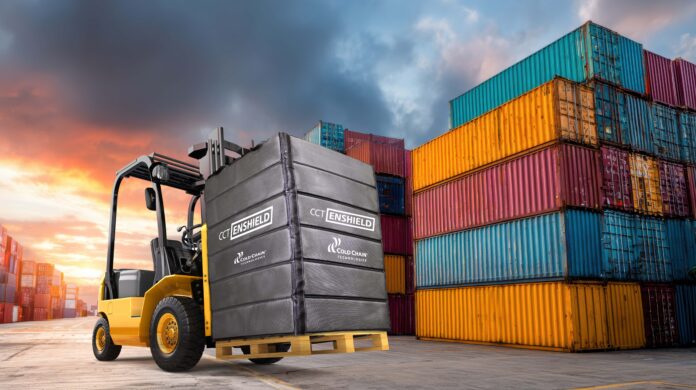
Cold Chain Technologies (CCT) has successfully demonstrated that sea freight can be a reliable, cost-effective, and sustainable alternative to air transport for high-value pharmaceutical products, following a landmark project with Kuehne+Nagel and Teva Pharmaceuticals.
The project validated the transportation of temperature-sensitive medicines from Germany to Australia, one of the world’s most demanding sea routes. Despite facing multiple logistical challenges — including a Suez Canal closure, a power outage in the Indian Ocean, and delays in Sydney Harbour — the shipment arrived in perfect condition within the target 2–8°C range.
The success was largely attributed to CCT’s Enshield, a reusable PCM (phase change material) thermal blanket, which maintained stable temperatures even during extreme conditions. Unlike traditional covers, Enshield uses leakproof Koolit Advanced gel that slows thermal exchange and prevents temperature fluctuations, ensuring product integrity throughout the 70-day journey.
“Traditional blankets are flawed — once hot air gets in, it can get trapped. Enshield is designed to maintain balance and consistency, even when external conditions change,” said Kristian Williams, Senior Director of Sales – EMEA & APAC at CCT.
According to Teva’s logistics team, the shipment faced nearly every conceivable test, yet remained compliant and stable. “This was the most challenging run we did, but also the best performing,” said Judineth Miranda, Senior Director, Key Account Management Healthcare at Kuehne+Nagel.
The results highlight the potential of sea freight to reduce emissions and logistics costs in the pharmaceutical sector, with CO₂ savings up to fivefold compared to air transport.





